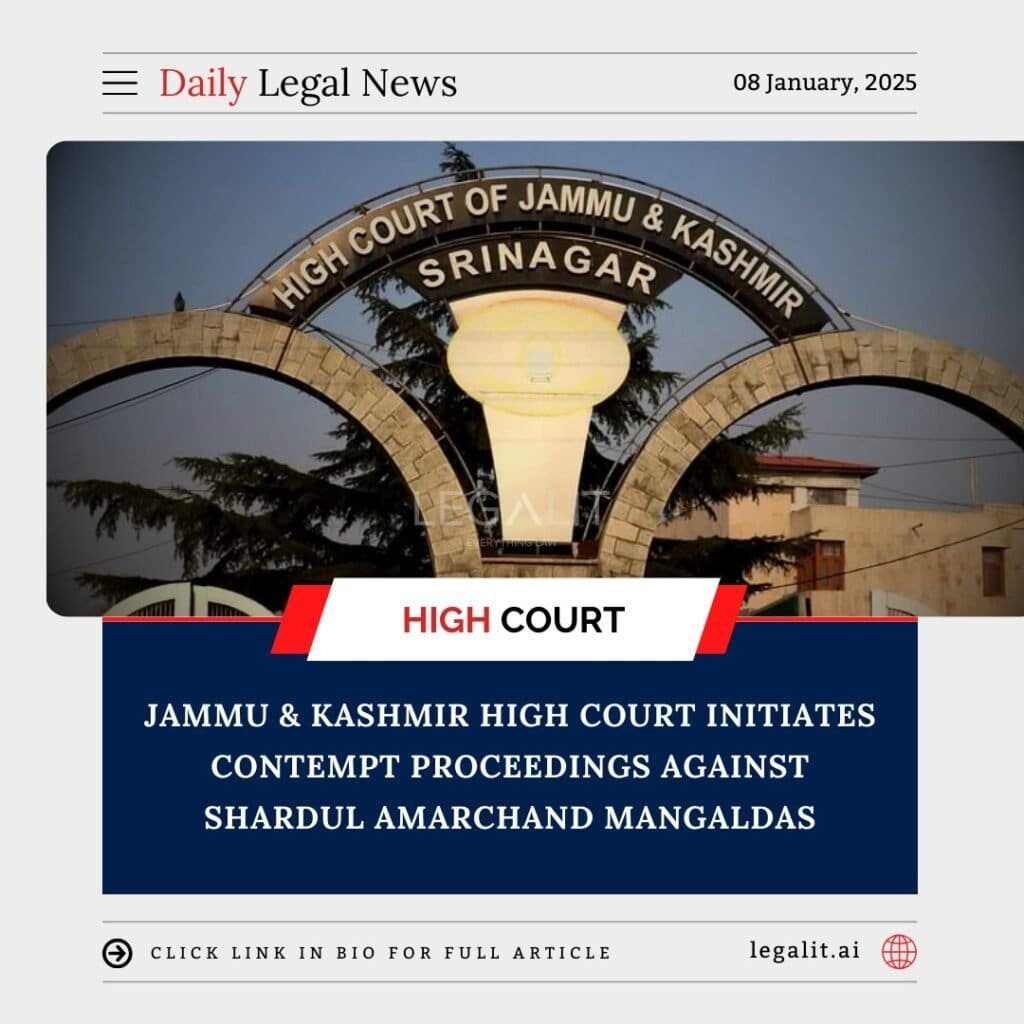
The Jammu & Kashmir High Court has taken suo motu cognizance to initiate contempt of court proceedings against leading law firm Shardul Amarchand Mangaldas & Co. The case stems from allegations that the firm acted in a manner that undermined the dignity of the judiciary. This development has sparked discussions within the legal fraternity about professional accountability and respect for judicial orders.
Background of the Case
The High Court’s action is based on purported conduct by Shardul Amarchand Mangaldas that was perceived as defying or disregarding the court’s authority. While the specific details of the alleged contempt have not been disclosed in public records, the court has made it clear that the firm’s actions warrant further scrutiny under contempt laws.
Legal experts note that contempt of court is a serious matter, involving either civil or criminal disobedience of judicial orders, actions that lower the court’s authority, or interference with the administration of justice. In this case, the High Court deemed it necessary to initiate proceedings to preserve the sanctity of judicial processes.
Court’s Rationale
The Jammu & Kashmir High Court emphasized that any conduct undermining the court’s authority cannot be tolerated, regardless of the stature of the party involved. By initiating contempt proceedings, the court seeks to maintain judicial decorum and assert the necessity of compliance with its directives.
The court’s decision also reflects its commitment to upholding professional ethics within the legal community. It reiterated that law firms and lawyers, as officers of the court, bear a special responsibility to act in accordance with legal and ethical standards.
Legal Implications
1. Accountability of Legal Professionals
The case underscores the accountability expected of law firms and individual lawyers. Non-compliance with judicial orders or actions that bring disrepute to the judiciary can result in severe legal and reputational consequences.
2. Upholding Judicial Authority
The initiation of contempt proceedings sends a strong message about the judiciary’s intolerance for any behavior that undermines its authority or disrupts the judicial process.
3. Impact on Legal Practices
High-profile cases like this highlight the need for law firms to ensure strict adherence to judicial orders and ethical guidelines. They also prompt firms to revisit internal policies to mitigate risks of contempt-related actions.
4. Broader Message to the Legal Community
This case serves as a precedent for other legal professionals, emphasizing that the judiciary will not hesitate to act against perceived misconduct, irrespective of the size or influence of the parties involved.
Next Steps in the Case
The High Court has directed Shardul Amarchand Mangaldas to respond to the contempt charges. The firm is expected to present its defense and clarify its position regarding the alleged actions that led to the initiation of these proceedings.
Depending on the outcome of the hearings, the court may impose penalties, including fines or other sanctions, if it finds the firm guilty of contempt. Alternatively, the proceedings may provide an opportunity for the firm to address and rectify the situation.
Conclusion
The contempt of court case initiated by the Jammu & Kashmir High Court against Shardul Amarchand Mangaldas underscores the judiciary’s unwavering commitment to upholding its authority and ensuring compliance with its orders. It highlights the critical role of ethical conduct and accountability in the legal profession. As the case unfolds, it will serve as an important reminder to the legal community about the need to balance professional responsibilities with the highest standards of respect for judicial processes.